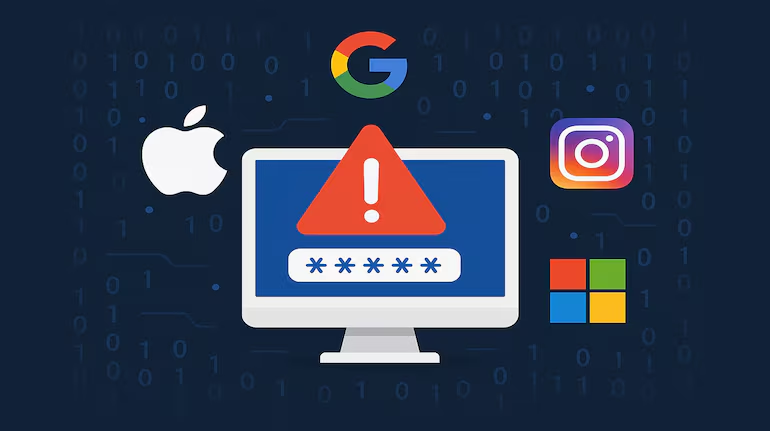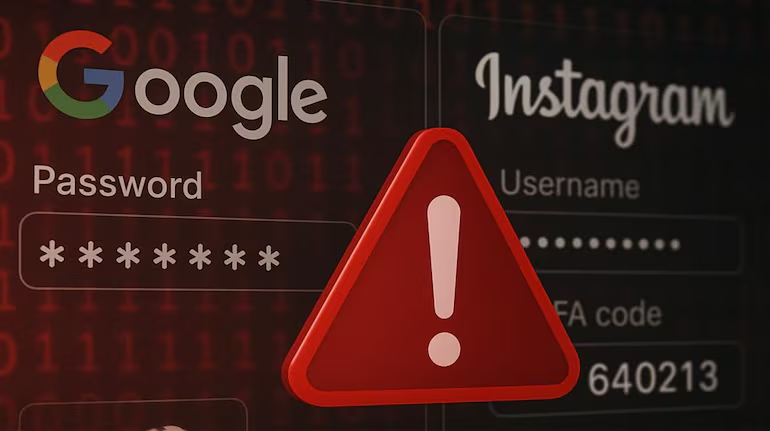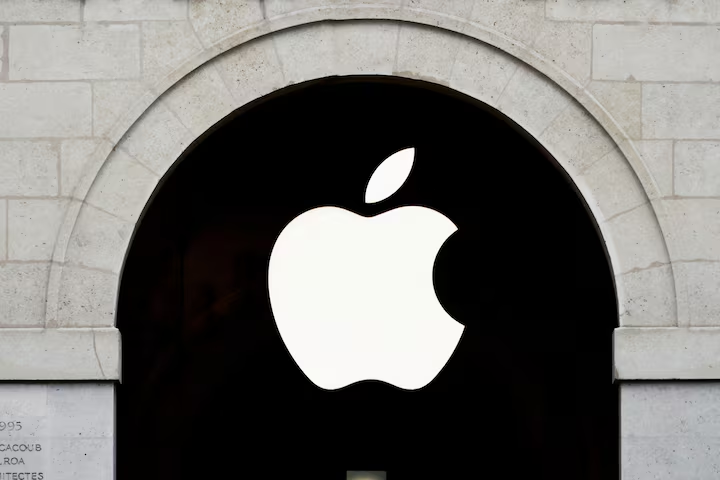Table of Contents
The internet has just witnessed what experts are calling the biggest mega data breach in history. Over 16 billion login credentials—usernames, passwords, browser cookies, and authentication tokens—have been leaked online, putting billions of users at risk.
This mega data breach wasn’t about one platform or one mistake. It spans major tech giants like Apple, Google, Facebook, GitHub, Telegram, and even government services. Security experts are sounding the alarm—and you should be paying attention.
Not Just Another Breach
This isn’t recycled data from old leaks. Researchers from Cybernews uncovered 30 unique datasets from unsecured servers, all packed with fresh credentials—data likely captured by infostealer malware planted on infected devices.
What makes this mega data breach truly dangerous is its freshness and scale. Unlike older leaks where passwords have long been changed, this data is current and ready for exploitation.
“This is not just another leak. It’s an attack surface. These are live credentials, usable right now,” said Vilius Petkauskas, lead analyst at Cybernews.
Why It’s a Threat to Everyone
From students and freelancers to government officials and crypto investors, the mega data breach affects everyone. Even if you use only a few online services, your digital footprint could be exposed.
Here’s why this breach is so serious:
- Massive Scale: 16 billion records across every major platform.
- Fresh Data: Not repackaged from older breaches—these credentials still work.
- Infostealer Malware: Used to silently collect passwords, cookies, autofill data, and wallet credentials.
- Wide Reach: Affects not just individuals but businesses, schools, financial institutions, and cloud services.
What You Can Do Now
If you’ve ever used online services—and who hasn’t—take these immediate steps to protect yourself:
- Change your passwords—especially on email, banking, and cloud storage accounts.
- Use a password manager to generate strong, unique passwords for every account.
- Enable multi-factor authentication (MFA)—preferably using an authentication app or hardware key.
- Consider passkeys, a newer authentication method supported by Google and Apple that uses biometrics and eliminates passwords altogether.
- Run malware scans on your devices to check for infostealers or spyware.
- Check if your data was breached using tools like haveibeenpwned.com.
Real Lives, Real Damage
Emma Sharma, a Mumbai-based teacher, recently woke up to a nightmare. Her Gmail account was locked, her Amazon orders were rerouted, and nearly ₹40,000 disappeared from her savings account. Investigators linked the fraud to compromised credentials—now believed to be part of this mega data breach.
“It felt like my whole digital life was hijacked,” she said. “And I had no idea it had even happened.”
Unfortunately, Emma’s story isn’t unique. With 16 billion credentials leaked, this breach is now fueling targeted phishing attacks, identity theft, and account takeovers worldwide.
Also Read: Top 5 Productive AI Tools for Daily Use, June 2025 Guide

Global Response & Next Steps
Big Tech firms are racing to contain the fallout:
- Google is promoting passkeys to move users beyond passwords.
- Apple is stepping up privacy alerts and recommending password updates.
- The FBI has issued warnings about phishing SMS messages linked to the leaked credentials.
- Crypto exchanges are urging users to rotate keys and enable MFA to prevent wallet takeovers.
Meanwhile, cybersecurity firms are urging government regulators to push for stronger password policies and enforceable data security laws to prevent breaches of this scale.
What This Teaches Us
This breach is a wake-up call—not just for tech companies, but for all of us. We can’t rely on passwords alone anymore.
- If you’re still using the same password across multiple sites, change that today.
- If you’ve been putting off enabling MFA, now is the time.
- If you’re unfamiliar with passkeys, learn and adopt them—many services already support them.
The bottom line? In the age of mega breaches, password hygiene is life hygiene.
Final Thoughts
The 16 billion record mega data breach is a historic cyber incident. But the story doesn’t end with the leak. The next chapter depends on how we respond—as users, developers, companies, and governments.
Security isn’t a one-time fix—it’s a continuous habit. Update your passwords, adopt safer login practices, and share this information with people who may not know they’re at risk.
Because in this new world, your best defense is being proactive—before it’s too late.









